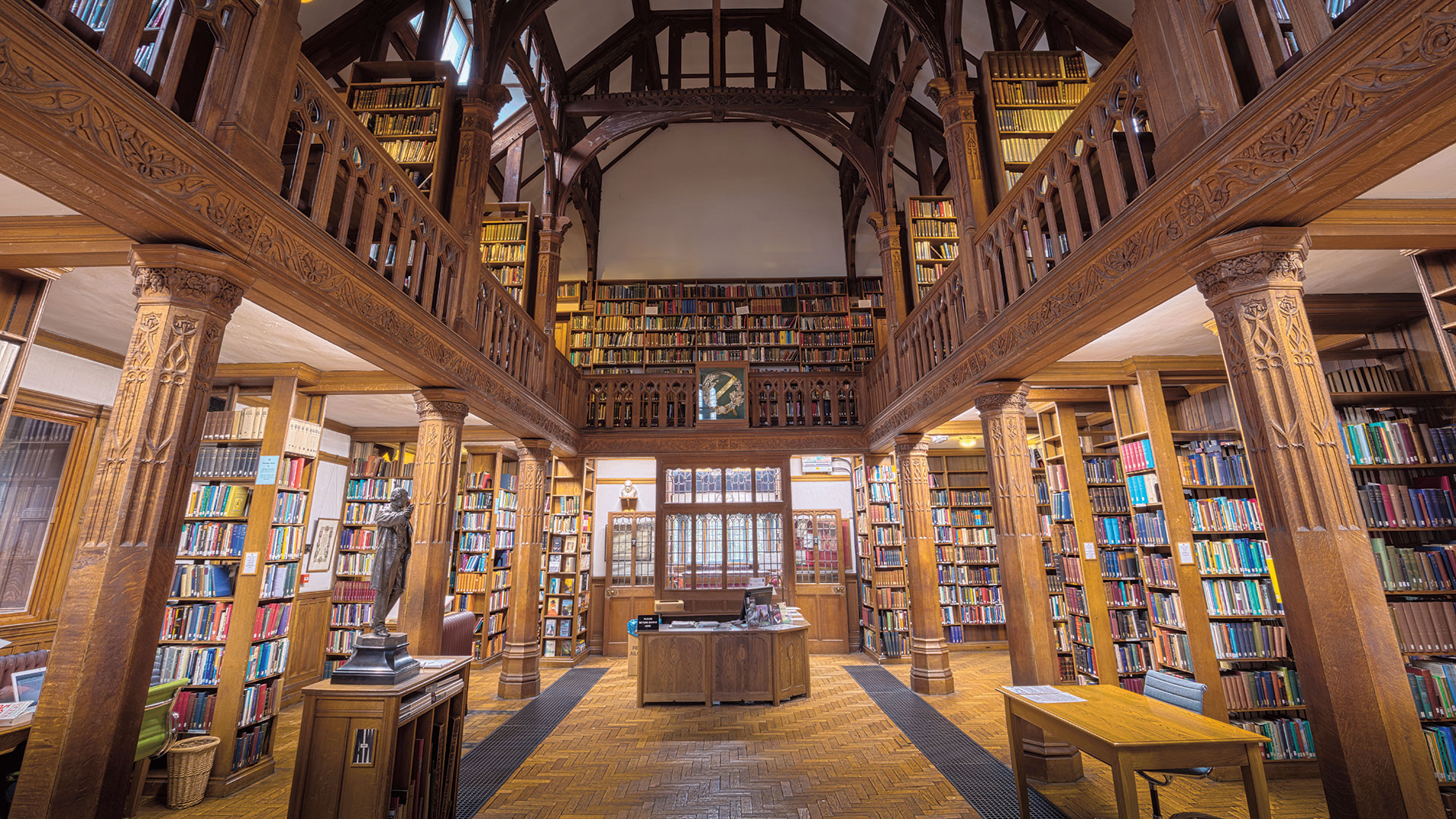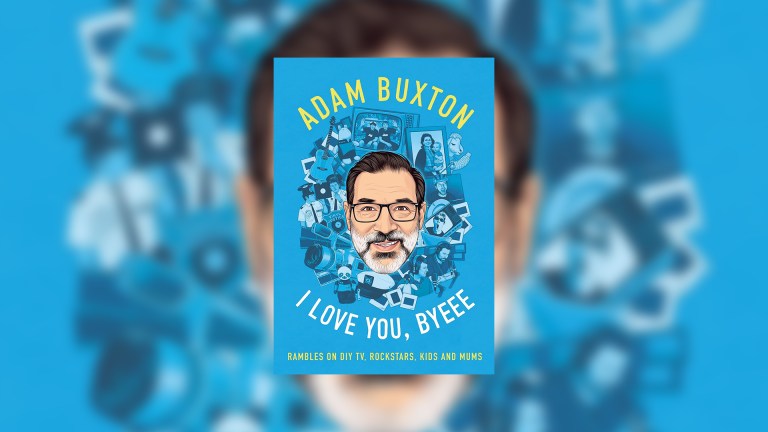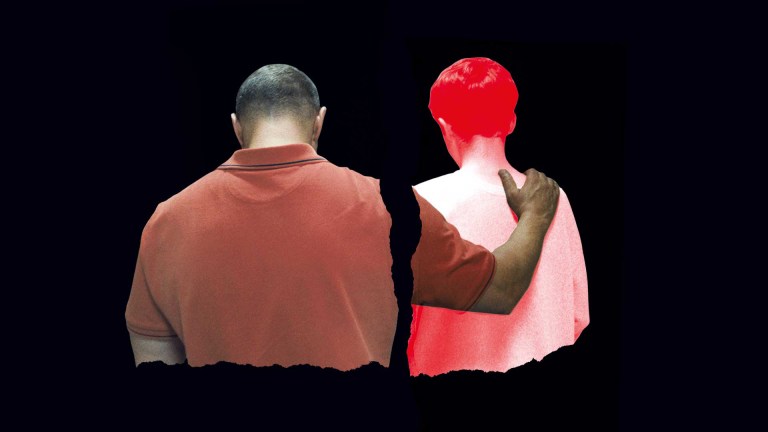In an 1890 article titled On Books and the Housing of Them, William Ewart Gladstone, four-time British prime minister, observed that books were “the voices of the dead. They are a main instrument of communion with the vast human procession of the other world”. As a rare books librarian, communing with extraordinary books is something I am fortunate to do every day. Part of the boundless joy of shelves of bound volumes is knowing that, for all we have discovered about our collections, there is still so much to discover. As anyone who has spent time amongst the stacks of a library will know, the most extraordinary discoveries made with books are made accidentally. Just as one opens and closes a cover, a book also opens and closes the space between the living and the dead.
The library I work in, Gladstone’s Library, was founded by Gladstone himself before his death in 1898. A life-long reader and book buyer, the library was formed around his own collection of 32,000 books for, as he put it, “the pursuit of divine learning”. Opened in 1906 as St Deiniol’s Library, it now contains a collection of around 150,000 print and manuscript items. Gladstone’s own books are available for anyone to read. Doing so, you see that he was not only a reader but an annotator. Of the staggering 22,000 books Gladstone is estimated to have read in his lifetime (according to his diary), between 8,000 and 10,000 of his books and pamphlets contain underlined passages, marginal notes or even a handwritten index of his interests as he read.
We must admit, sometimes we just step back and admire how pretty we are #sovain pic.twitter.com/6Wei7N59kF
— Gladstone's Library (@gladlib) March 12, 2017
As a librarian, I am hardly an advocate for writing in library books. However, I’m glad that Gladstone did so in his. His collection is as close a communion with their owner and reader as one can get. Marginal notes may tell us only a partial tale, but what they tell can be surprising. Take, for example, Gladstone’s copy of On the Subjection of Women by John Stuart Mill. Our copy, simply bound, is an 1869 first edition, inscribed ‘from the author’ himself. Beside a passage by Mill advocating “society between equals”, Gladstone writes ‘why’. This simple comment shows even the most liberal of 19th-century minds had unexpected limits. It is one of many surprising marginal marks throughout his collection – not least of which is his distinctive ‘backwards question mark’ in many of his books, a mark still baffling scholars today.
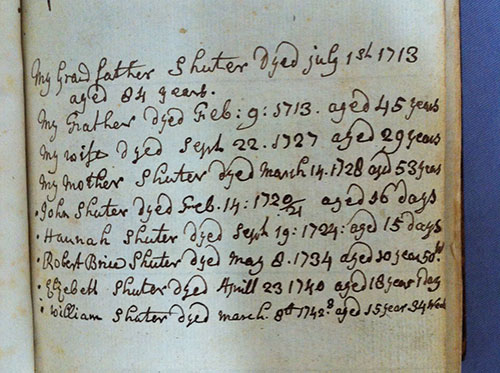
Recently, while researching into our oldest books, I found two very different, and quite unexpected, traces left by former owners and readers. On the endpapers of a 1679 King James Version (above), one member of the Shuter family (a family I hope to learn more about) has listed the births and deaths in his family, with some living only for 15 days. Another 17th-century text on our shelves is A Body of Divinitie, by Archbishop James Ussher (below), famous for dating creation to October 23, 4,004BC. An anonymous reader has covered one of its endpapers in what are called ‘pen trials’. The word ‘God’ becomes ‘good’, mostly to practise joined-up writing. The reader – whoever it was – has even trialled the word ‘book’ itself. For the Shuter family, a book was a kind of memory work. For the unknown inscriber in the Ussher, the book was an exploration in the possibilities of words and writing. No other trace of the lives of these readers’ pasts exists that I know of; both were found by nothing more than chance amongst the stacks.
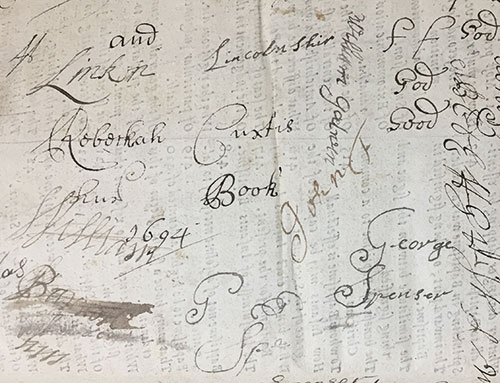
Not every library has rare books but rare books can illuminate the joy of discovery and learning that is possible with any book, in any library. All libraries are vast collections of discovery, containing countless instances of ‘communion’, as Gladstone put it. To lose a library is, therefore, to lose a place of human communion through objects, a place where discoveries made are often the most unexpected. The fight to keep libraries open is a fight for spaces that open the present into the past so our future may benefit.
